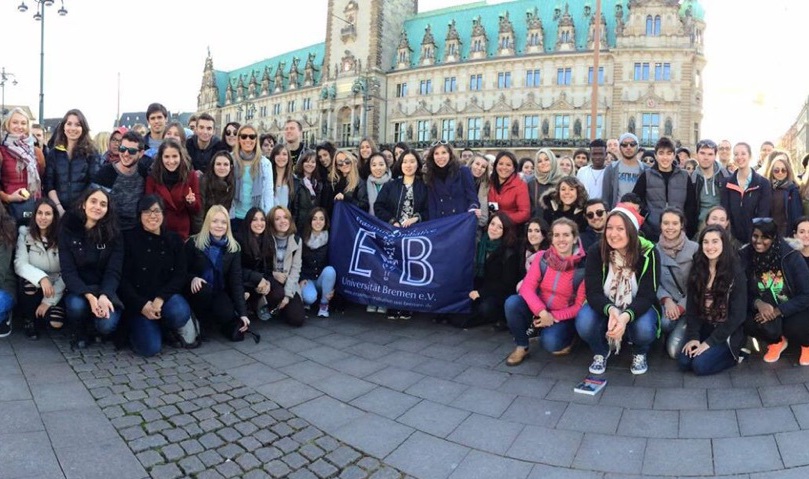University of Bremen – a source of valuable experience

Student exchange became a valuable experience for me: I learnt the realia of European education system, experienced daily life in another country, travelled and saw many famous places in Europe and found friends.
Preparations for the trip
Document collection didn’t take much time. My master’s programme at HSE works directly with the Faculty of Business Studies and Economics at the University of Bremen, therefore the whole process went smoothly. However, I should have started preparing my visa documents earlier: close to the semester starting date there is a month-long waiting period to apply for a visa, and then it takes the same amount of time to process it. All the procedures in regards to dealing with documents upon arrival to Bremen are well-organized so you are unlikely to have any additional questions.
Life in Bremen
Finding accommodation in Bremen will not be an issue. You will be assisted in advance with finding a room in a dorm, an apartment or a student share house. Interestingly, student accommodation on campus is significantly more expensive than the private one in the city..
If you want to get engaged in sports or arts activities the university would suggest multiple options of interest groups and clubs for a reasonable price. Moreover, you can always take part in the university-organized parties, games, etc. You will definitely have enough ways of socializing. Depending on your timetable you can free some weekends for yourself and visit all the nearby cities and countries. The university also organizes tours for exchange students. I used the opportunity to go to Berlin, Hamburg and Bremerhaven.
Study process
I was at the University of Bremen almost for the whole 2nd year of my master’s programme. The reason is that semester dates in Germany are different. As such winter semester is 1Oct – 1 April. Even though at the University of Bremen (local students call it ‘uni’) master’s programme ‘Governance of Science, Technology and Innovation’ is only getting ready to be launched, the Faculty of Business Studies and Economics provides sufficient subjects that cover the programme requirements.
The subjects usually ‘cost’ more than those at HSE, therefore by having 2 you can earn from 12 to 24 credits. Furthermore, 2nd year master students in Germany mostly study by themselves by researching for a particular topic either individually or in groups. Lectures are held only a couple of times a week. I was lucky with the subjects I had chosen because they are not taught at HSE. While studying in Germany I found that the subjects I studied a year beforeat HSE were really helpful:
- Economics of Innovation (taught by Dirk Meissner, Vitaliy Roud and Ian D. Miles);
- Strategies in STI Management (Dirk Meissner, Jonathan Linton and Thomas Thurner);
- STI Policy (Dirk Meissner).
Owing to them I already had a good understanding of the innovations topic and new information was easily digestible.
Learning German is optional and free. It won’t take much time but will facilitate meeting interesting people from all over the world and give you useful tips on a daily life in Germany. Also you can attend any classes you like as a free-listener. After a subject is finished you will even be awarded a certificate that you attended but without being graded. Be aware that you will receive your full transcript only after 2-3 months.
About Germans
Even though Germany is a European country and the mentality is similar to Russian, some cultural shock is inevitable.
Sunday – is a dead day. All the cities get quiet (apart from Christmas markets and other festive seasons). Even food stores are closed. The same situation happens after 7-8pm. It is almost impossible to see anyone on the streets after that time, yet, in warmer seasons those time boundaries are shifted a little.
Going for an exchange in winter is a wonderful opportunity to visit Europe during Christmas period! From the 1st to the 22nd of December all the streets look like from a fairy tale. At the markets you can taste lots of delicious food and of course drink some hot wine or punch. Christmas day itself is a family occasion for Germans, consequently even a day before the Christmas Eve you won’t find any stalls or attractions. Silence falls upon the cities again.
Beer is sold everywhere, even at the university. You can drink it anywhere, anytime and in any quantities. Also Germans enjoy their food, and a lot! Small portions in Germany simply do not exist. What surprised me though was that Germans, like other Europeans, like potatoes. You can buy it everywhere especially during holidays. I even thought that simple French fries were more popular there than a famous Currywurst!
I have so many memories of my trip and I believe they will stay with me for a long time.